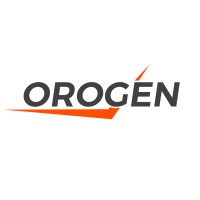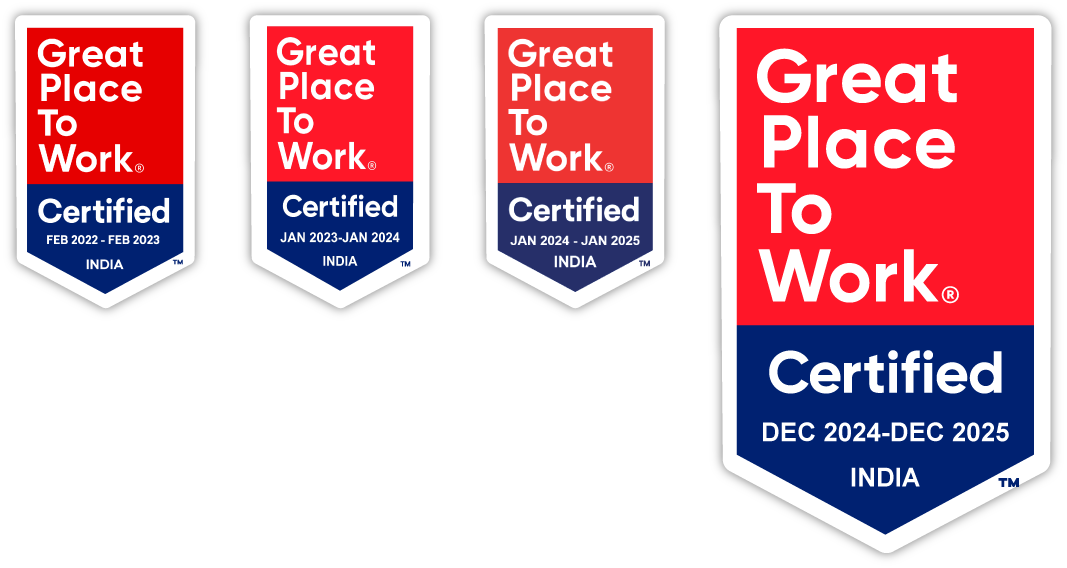
Interview by Hermann A.M. Mucke, ASSAY and Drug Development Technologies
19th July, 2016. Excelra
Dr. Nandu Gattu heads the Pharma Analytics Group at Excelra. He has more than 25 years of experience in Computational Biology, Pharmacology and Drug Discovery & Development. Prior to joining Excelra, Dr. Gattu was associated with Schering Plough Pharmaceuticals, SmithKline Beecham, GlaxoSmithKline and Vimta Labs. He has initiated and championed multiple innovative programs at Excelra including Drug Repurposing platform and Computational Biology. Dr. Gattu has an MD in Ayurvedic Medicine from Osmania University, India. He has an MS in Cardiovascular Pharmacology from University of Montana, and a PhD in Neuropharmacology from Medical College of Georgia. Dr. Gattu has several scientific publications, 50 plus patents and has mentored more than 20 doctoral and postdoctoral fellows.
Dr. Nandu Gattu heads the Pharma Analytics Group at Excelra. He has more than 25 years of experience in Computational Biology, Pharmacology and Drug Discovery & Development. Prior to joining Excelra, Dr. Gattu was associated with Schering Plough Pharmaceuticals, SmithKline Beecham, GlaxoSmithKline and Vimta Labs. He has initiated and championed multiple innovative programs at Excelra including Drug Repurposing platform and Computational Biology. Dr. Gattu has an MD in Ayurvedic Medicine from Osmania University, India. He has an MS in Cardiovascular Pharmacology from University of Montana, and a PhD in Neuropharmacology from Medical College of Georgia. Dr. Gattu has several scientific publications, 50 plus patents and has mentored more than 20 doctoral and postdoctoral fellows.
Dr. Gattu, could you first briefly describe the mission of Excelra
Excelra has been recently formed from GVK Informatics (the erstwhile informatics division of GVK Bio). For the past 14 years, we have been in the business of helping the life science research and development (R&D) community through multiple data informatics services and products. Recently, in the past 5 years, we have added big data analytics capabilities to further enhance our contribution to R&D.
The mission of Excelra is to provide knowledge-based solutions in the drug discovery and development area to pharma, bio-tech, and agrochemical companies. It centers on the two pillars of life science data and analytic solutions. We provide specialized products, service platforms, and analytics, all focused on enhancing R&D for the life sciences community.
The business model accommodates fee-for-service activity-based curation services, sale of knowledge base, scientific data analytics consulting services, and potential collaboration in drug discovery with special emphasis on drug repurposing.
What place does drug repositioning take in Excelra’s business strategy?
It is and will remain one of our core focuses. Although currently we are offering it as a service to help create asset and intellectual property for large pharma and biotech clients, going forward we are looking to explore partnership models to create virtual proof of concepts programs. These partnerships will focus on the integrated programs proving our virtual findings with the “wet work” and goal to get to the clinic.
How is Excelra’s approach to drug repurposing unique?
Excelra’s approach to the drug repurposing comes in three parts—the data, the team, and the approach.
Data: Our team has been curating data from clinical, biological, and chemical scientific articles and patents for the past 14 years and has created very rich and vast data sets, long before Excelra was established. Data have always been our core strength. Utilizing our own proprietary database and harmonizing it with 45+ publicly available databases, we have created “GRID” (stands for global repurposing integrated database). GRID is the foundation to understand the drug–disease–target relationship, which, in turn, helps to identify the potential alternative indications and mechanism of actions.
The second point is the team—among 50-plus people in the drug repurposing department, 35-plus have PhDs in biology, chemistry, pharmacology, or computer science. Most of them are with great professional experiences, education from top-tier Western universities, and an overall wealth of knowledge that make the team one of a kind! This experience and education of understanding drug discovery and compounded with the immense knowledge in biology help us to connect the dots in the relationship between drugs, diseases, and molecular targets. This knowledge pool of highly motivated minds is another key differentiator.
The third point is our multipronged systemic approach based on a number of different algorithms to identify potential alternative indications. We have developed more than eight different algorithms or approaches covering the chemistry, biology, pharmacology, clinical, genetics, genomics, and literature mining activities. Combining the integrated databases, proprietary algorithms, analytics tools, and visualization engine, we have developed a proprietary “Global Repurposing Integrated Platform (GRIP).”
Hence, our proprietary data, well trained and experienced scientists, and our proprietary repurposing platform are key differentiating factor in drug repurposing science.
Obviously, every drug repurposing project is unique. But do you encounter recurring patterns in your projects? Could you name some specific problems and challenges you are constantly facing?
For the sake of convenience, we divided repurposing activities into three major areas. First, drug-based repurposing, where you start from an active compound and identify potential alternative indications. Second, disease-centric repurposing, in which you try to identify potential therapeutic agents for the specific disease. And finally, you may start from a target and identify the potential drugs or diseases where this target is involved in the pathophysiology. Although these three services are different, there are many common challenges. Even within the drug-centric repurposing, each project is different but we see common themes and challenges. Drug-centered repurposing is relatively easy compared with disease-centric or target-centric repurposing, where there are many more drugs to survey and understand.
As far as challenges are concerned, it can come from available data, effectiveness of algorithms, and biological interpretation. Availability of the right data is always a challenge. If we do not have sufficient direct or indirect data for a given drug or disease, it is always difficult to interpret or extrapolate the information. Hence, we always ask our partners to provide as much as they can of their shelved compounds. More is merrier here. The second challenge is applying the different algorithms to the problem. Not necessarily all the algorithms will give good results all the time. Sometimes they work, sometimes they don’t. That is the nature of the business—nothing wrong about it. That is the reason why we employ multiple algorithms to address the problem. The third challenge is biological interpretation. As you know, a scientist can put together meaningful scientific hypothesis from the existing data, but at the end of the day, a hypothesis is a hypothesis. We have to move forward with preclinical proof of concept experiment to prove alternative indications. Convincing your partner with pure in silico hypothesis is a challenge, but we are very successful so far. These are the challenges we face on a regular basis.
The challenges of collaboration-related asset generation are a completely different matter. All pharma companies have their share of failed drugs and candidates. Lately, pharma companies are willing to share their failed or shelved compounds with other enthusiasts to repurpose the same for different indications, but there is still lot more room to improve this practice.
Your main place of business is in Hyderabad. India is known to support its own companies if they are technology leaders and work in a promising field. Do you get government support for your activities?
The government has always been very supportive of our work. Drug repurposing and computational biology are nothing but marriage between biology and IT. India has recognized biotechnology as one of the thrust areas and has continuously encouraged people to initiate novel innovation ideas into business. Excelra currently operates from a special economic zone (referred to as SEZ). This SEZ constitutes companies focused on software services and other knowledge management initiatives. As a part of this SEZ, we are given tax holidays in the form of paying minimum alternate taxes and special window approvals for certain items.
We are located in Hyderabad, India, with sales offices located in the United States, Europe, and Japan. Hyderabad is home to major software companies, and drug repurposing and our knowledge management solutions are part of the IT-enabled activities. Our state government has been very active in attracting some of the largest technology players in the world to set up service and manufacturing facilities in and around Hyderabad. And I am sure Excelra will continue to benefit from these initiatives.
That is important for our readers to know, because it obviously plays a large role in the decision of where to go if you have not made up your mind yet.
Absolutely.
What international collaborations does Excelra currently have?
We have a number of projects that are going on with major pharma companies. Those we can disclose include Takeda Pharmaceuticals, Astellas Pharmaceuticals, and a previous engagement with the United States’ FDA. Apart from that, there are a number of undisclosed collaborations we are currently working on. Some are fee-for-service, and others are more collaborative in nature. We are working with small-, mid-, and large-sized pharma companies who believe in our technology and we have identified potential drug repurposing candidates for them. We collaborate with such companies to bring the failed or shelved assets back into their portfolio. To give you an idea, Excelra has more than 100 clients—for us each of those partners are collaborations.
To wrap this up, where do you see Excelra 5 years from now, in 2020?
Excelra has defined short- and long-term objectives to fulfill our vision and mission. We like to be a key informatics player in 2020 with a focus on three key themes: (1) Data platforms: we will continue to develop, enhance, and leverage our historic label of a database product for the discovery community. These will be niche platforms with a variety of analytical capabilities. We are looking toward launching some new products very shortly. (2) Services: we are looking at data curation, management, and harmonization for the STM information industry and our computational chemistry/biology services for the life sciences world. (3) Virtual drug discovery programs: we are enthusiastically advancing our strategic plan to generate drug repurposing assets along with potential collaborators. We have initiated discussion with major pharma companies to relook at some of their failed or shelved compounds and to develop a mutually beneficial collaboration. With our partners and sister companies, we have end-to-end drug repurposing capabilities, starting from in silico to preclinical and all the way up to generate an Investigational drug data package.
– To view article please visit: ASSAY and Drug Development Technologies (http://online.liebertpub.com/doi/full/10.1089/adt.2016.29040.nga)
About Excelra
Excelra Knowledge Solutions is a leading Informatics Solutions company that leverages its extensive scientific knowledge base, technology and relevant domain expertise to provide intelligent data and analytics solutions to customers globally. Excelra’s expertise spans across Data Solutions, Data Indexing & Abstraction and Data Analytics. The company has over nine successful Drug Repurposing collaborations with leading pharmaceutical companies and has developed a proprietary Drug Repurposing Platform and Computational Biology capabilities.
Excelra has a team of 650+ scientists with rich experience in Chemistry, Biology and Clinical Sciences who are engaged in curation of databases spanning SAR (GOSTAR®), Biomarkers (GOBIOM) and Clinical outcomes. Excelra’s portfolio of customers include some of the world’s largest Pharmaceutical, Biotechnology, Publishing, Agrochemical, Life Sciences and Academic institutions in the USA, EU, Japan and Asia Pacific.





